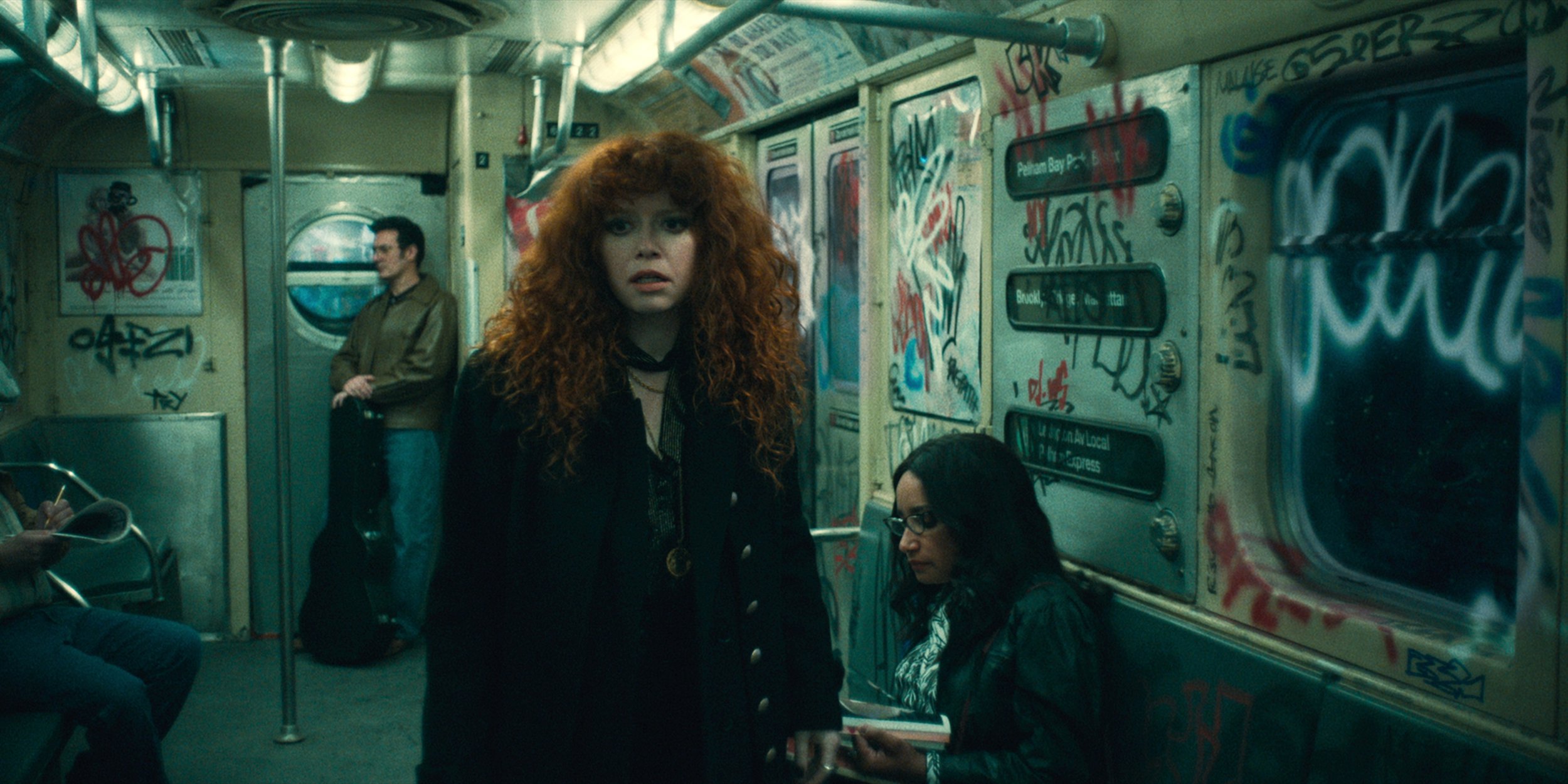[Review] Russian Doll Season Two Wasn't Needed But I'm Glad It Exists
Russian Doll didn’t really need a second season. In eight episodes of a darkly comedic Groundhogs Day, Nadia (Natasha Lyonne) tries to escape a video game logic realm that ultimately ends with her death. With themes of fate and love on the line, the season ended on a perfect and hopeful note. And for the longest time, it seemed as if that’s where creators Leslye Headland, Natasha Lyonne, and Amy Poehler would leave it. Three years and a pitch perfect, self-enclosed season later, one of the biggest questions is whether Russian Doll needed a second season. And the answer is, just like the series, a bit complicated.
After a season spent trying to escape her own death, Nadia finds herself staring down a different kind of mortality. On one hand, there’s Ruthie (Elizabeth Ashley), her one connection to a complicated past and, after her mother Nora (Chloë Sevigny)’s death, the only family she really has left. And on the other, there’s the more thematically weighty subject of the mortality of Self. Not life and death, but of existence itself. A byproduct of a tormented mother who had her own complicated past, Nadia is, in her own words, the result of “trickle down genomics,” a series of both unfortunate and fortunate events that ultimately led to her existence, such as it is. All of this is represented in Ruthie, who begins the season in a fender-bender that sends her to the hospital.
Mirroring reality, it’s been three years since Nadia and Alan (Charlie Barnett) escaped the time loop and, in that time, she’s attempting to finally get her life on track. She’s somewhat given up smoking, preferring to chew the same cigarette instead. She’s present in her friendships and in her relationship with the aging Ruthie, her final tie to her complicated past. As Nadia stares at Ruthie, forehead banged up and voice smokier than usual, she begins to realize that everything that made her her could soon vanish.
So it makes thematic sense that a few days before her 40th birthday, Nadia gets on the 6th train and ends up in 1980s New York, where we meet a much younger Nora, who still has a fortune in gold Krugerrands, an inheritance obliquely mentioned in season 1. Seeing the opportunity to fix both Nora’s life as well as her own in that trickle down way, Nadia attempts to interfere with a past that doesn’t necessarily want to change. Alan, meanwhile, fights his own demons while passing her train on his own adventure through time and space.
Initially, this somewhat uneven second season of Russian Doll lives on its surprises, which, like season one, are dolled out in even measure to elicit a chuckle or a cliffhanger-level twist. I can’t even talk about what makes this season so interesting to me because, sure, there’s an embargo on that, but part of the joy is peeling back the layers of this matryoshka doll and seeing what’s inside. It doesn’t have the immediate grab or comedic timing of a season enamored with exploring the various ways it could kill Nadia.
With a shooting schedule that involves New York as well as Europe and Budapest, Russian Doll feels much larger in scope but lacks the immediacy of the first season. But as the season progressed and the puzzle began locking into place, a much more intriguing journey presented itself. One that touches on gender, sexuality (sadly not enough) as it explores important time periods and explores what would, eventually, end up with an almost 40 year old Nadia who survived loop paradoxes and came through in one piece. As the season progressed into the final episodes, Russian Doll became something more than the sum of its weird and wacky parts. The final two episodes brought equal amounts of shocking realization and heart-breaking pathos that left the season on a much higher note than it began. And while the show originally didn’t necessarily make a case for a second season, this new iteration suggested that not only was it needed but that I would heartily welcome more time to spend with these complicated and imperfect characters.


![[Review] Russian Doll Season Two Wasn't Needed But I'm Glad It Exists](https://images.squarespace-cdn.com/content/v1/5b39608d75f9eef54c62c3f0/1650408334953-7NARFWHFAHSACMANZFRT/RDS2_publicity+pulls_Jan10R.jpg)



![[Review] The Northman is a Simple Story Done Incredibly Well](https://images.squarespace-cdn.com/content/v1/5b39608d75f9eef54c62c3f0/1650591962555-8Z66V5G0GA9V4X62HPO9/THE_NORTHMAN_Instagram_1080x1350_Dom_Payoff_FIN01_DOLBY.jpg)
![[SXSW 2022 TV Preview] 'Halo''s First Two Episodes Feel Like Generic Sci-Fi but I'm Optimistic?](https://images.squarespace-cdn.com/content/v1/5b39608d75f9eef54c62c3f0/1648420811166-D38GIO0X4G1EQXFAZPRO/Halo_101_2087_RT.jpg)
![[Review] I Am Not Okay With This is Here and At Risk of Doing The Thing: I Am Completely Okay With It](https://images.squarespace-cdn.com/content/v1/5b39608d75f9eef54c62c3f0/1582076765465-A1KMRSUJ4KXGEIOHIB2R/I-Am-Not-Okay-With-This-Netflix-poster-913.jpg)
![[Preview] Elite Season 3 Comes Full Circle and Feels Like an End](https://images.squarespace-cdn.com/content/v1/5b39608d75f9eef54c62c3f0/1584062868825-UD3GXDGP5MVNYZ324WQZ/dhdfghjdfhjfgjkghklhjl%3B.jpg)
![[Review] Search Party Season 3 Finds Sympathy for the Femme Fatale](https://images.squarespace-cdn.com/content/v1/5b39608d75f9eef54c62c3f0/1592958897108-ZLMS4IL1SGR0LKBJ21FT/unnamed.png)